 When an adult child asks for money, it's hard to say no. You want to respond to a need. But perhaps your child perceives that you don't need all you have, or that they're simply requesting some of their inheritance, just a bit early. Before you answer, ask for time to think it over. You...
When an adult child asks for money, it's hard to say no. You want to respond to a need. But perhaps your child perceives that you don't need all you have, or that they're simply requesting some of their inheritance, just a bit early. Before you answer, ask for time to think it over. You...
“My kids treat me like a bank”
 When an adult child asks for money, it's hard to say no. You want to respond to a need. But perhaps your child perceives that you don't need all you have, or that they're simply requesting some of their inheritance, just a bit early. Before you answer, ask for time to think it over. You...
When an adult child asks for money, it's hard to say no. You want to respond to a need. But perhaps your child perceives that you don't need all you have, or that they're simply requesting some of their inheritance, just a bit early. Before you answer, ask for time to think it over. You...
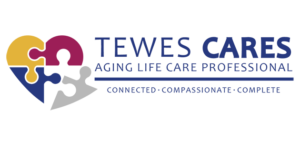

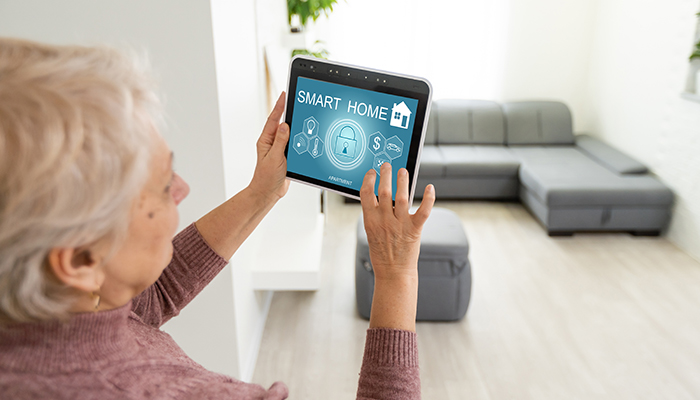 You probably already have some "smart" features in your home. For instance, a thermostat you can program for a higher temp during the day and lower at night. Perhaps it has remote capabilities, so you can make changes from afar. Or sensors, such as garden sprinklers that shut off when it's raining, or outdoor lights...
You probably already have some "smart" features in your home. For instance, a thermostat you can program for a higher temp during the day and lower at night. Perhaps it has remote capabilities, so you can make changes from afar. Or sensors, such as garden sprinklers that shut off when it's raining, or outdoor lights... 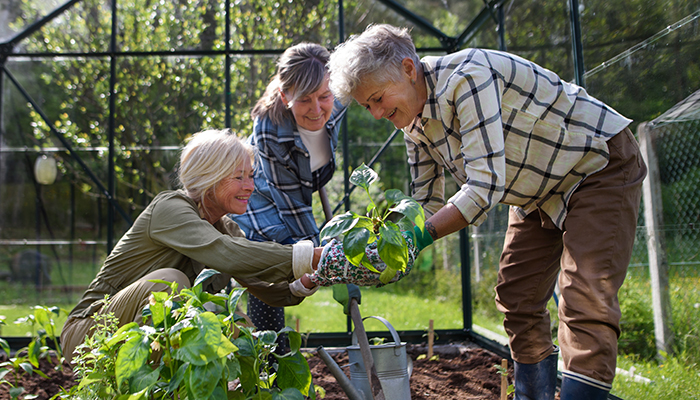 Cohousing is like a retirement community in that it is a group of residents in individual, private domiciles. Plus, there are shared facilities for group activities. What's different is that retirement communities are created and run by a developer. Cohousing communities are created by the people who will live in the buildings. All members hold...
Cohousing is like a retirement community in that it is a group of residents in individual, private domiciles. Plus, there are shared facilities for group activities. What's different is that retirement communities are created and run by a developer. Cohousing communities are created by the people who will live in the buildings. All members hold...  October 15–December 7 is Medicare's annual "open enrollment" period. This is when you can switch plans. Are you getting a lot of mail about the cost savings of Medicare Advantage (MA)? The initial outlay may seem less than your current plan. And if you have "original Medicare," plus a supplemental plan for the 20% Medicare...
October 15–December 7 is Medicare's annual "open enrollment" period. This is when you can switch plans. Are you getting a lot of mail about the cost savings of Medicare Advantage (MA)? The initial outlay may seem less than your current plan. And if you have "original Medicare," plus a supplemental plan for the 20% Medicare... 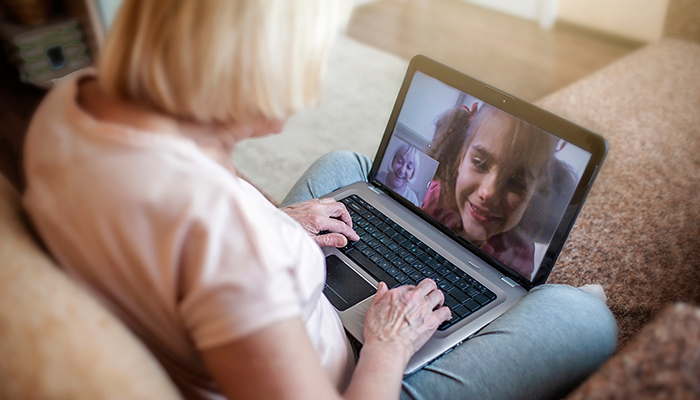 If you are like 68% of grandparents, you live too far away for regular interactions with your grandchildren. No reading bedtime stories or soothing little tears. No ticklefests or hands-on projects. These casual yet meaningful activities just aren't an option. Video visiting helps. But according to Kerry Byrne of The Long-Distance Grandparent, you can count...
If you are like 68% of grandparents, you live too far away for regular interactions with your grandchildren. No reading bedtime stories or soothing little tears. No ticklefests or hands-on projects. These casual yet meaningful activities just aren't an option. Video visiting helps. But according to Kerry Byrne of The Long-Distance Grandparent, you can count...  A vast majority of older adults (77%) say they want to remain in their own homes as they age. Of course! Home is comfortable: We know where everything is—in the house, and also in the neighborhood and town. Friends, doctors, grocery store. We know how to get around quickly and easily. Plus, the emotional benefits...
A vast majority of older adults (77%) say they want to remain in their own homes as they age. Of course! Home is comfortable: We know where everything is—in the house, and also in the neighborhood and town. Friends, doctors, grocery store. We know how to get around quickly and easily. Plus, the emotional benefits... 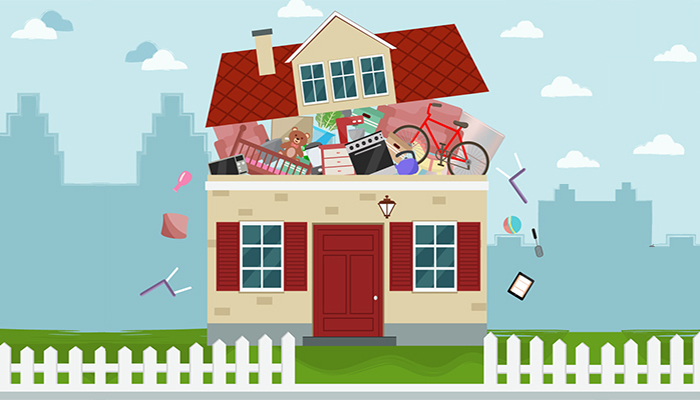 Three out of five (61%) of adults over 60 feel they have more stuff than they need. And yet many of us find it emotionally painful to cull our belongings. While the physical labor of "right-sizing" is daunting, perhaps more powerful—and surprising—is the emotional challenge. For instance, you may feel that letting go of grandmother's...
Three out of five (61%) of adults over 60 feel they have more stuff than they need. And yet many of us find it emotionally painful to cull our belongings. While the physical labor of "right-sizing" is daunting, perhaps more powerful—and surprising—is the emotional challenge. For instance, you may feel that letting go of grandmother's... 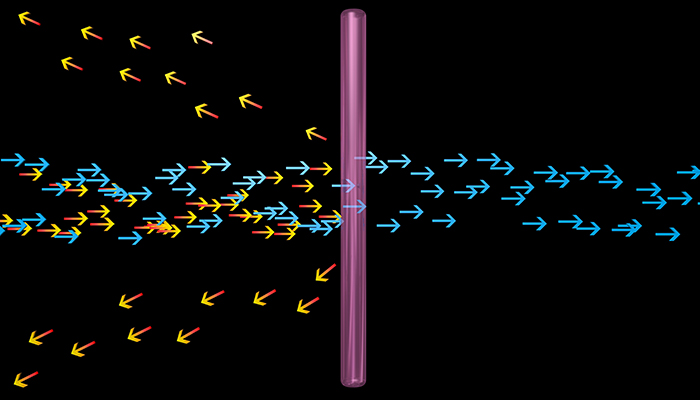 Do you find yourself more easily distracted these days? There is good reason: Concentration is about keeping what's useful top of mind while at the same time suppressing thoughts that distract from your primary objective. As we age, the "executive" center of the brain becomes less able to sort out distractions. It's a filtering process...
Do you find yourself more easily distracted these days? There is good reason: Concentration is about keeping what's useful top of mind while at the same time suppressing thoughts that distract from your primary objective. As we age, the "executive" center of the brain becomes less able to sort out distractions. It's a filtering process... 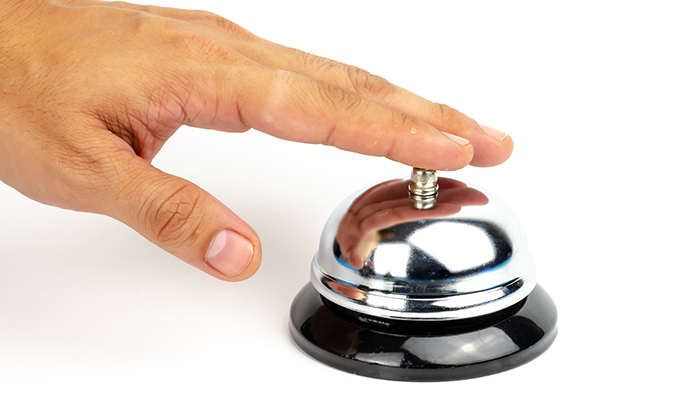 Are you tired of long waits to get an appointment? Rushed visits? Not being able to talk to your doctor by phone or communicate via email? You aren't alone. Doctors dislike it too. But because most physicians today are employees of a large medical group, they are required to complete 30–40 patient visits per day....
Are you tired of long waits to get an appointment? Rushed visits? Not being able to talk to your doctor by phone or communicate via email? You aren't alone. Doctors dislike it too. But because most physicians today are employees of a large medical group, they are required to complete 30–40 patient visits per day....